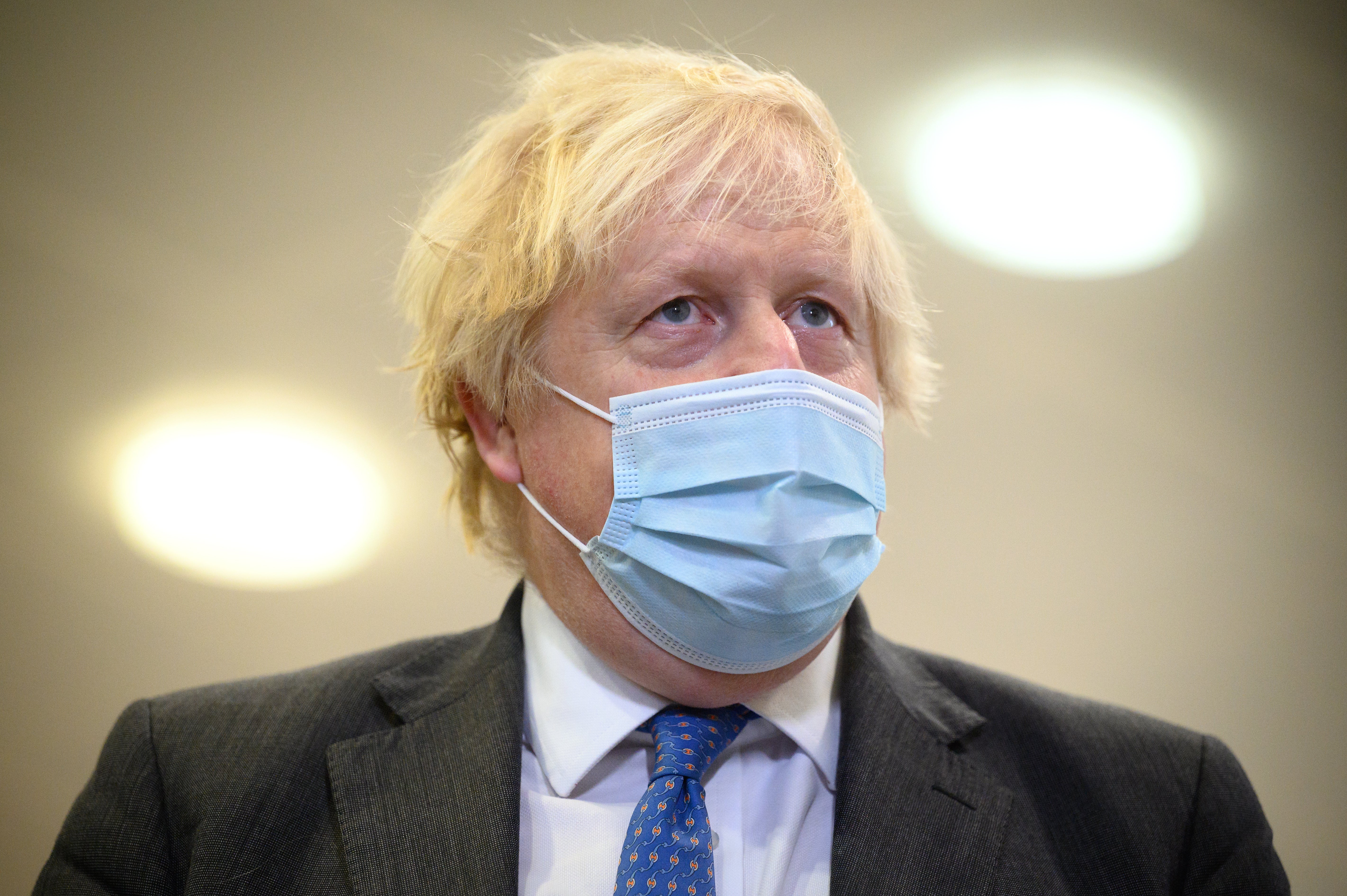Tougher Covid measures for new school term as Government set to review Plan B
Ministers say there is nothing in the data to suggest further restrictions will be needed imminently.

Many schools will return this week with extra Covid safety measures in place as the Government is set to review its Plan B restrictions for England.
With data still trickling in from the festive period, the extent to which the highly-transmissible Omicron variant will pile pressure on the NHS in the coming weeks is not yet clear.
A further 137,583 lab-confirmed Covid-19 cases were recorded in England and Wales as of 9am on Sunday, the Government said.
This was down on the 162,572 cases recorded in England alone on Saturday.
Concerns have been mounting over the impact of Omicron on the country’s workforce, as Boris Johnson tasked ministers with developing “robust contingency plans” for staff absences.
Health minister Ed Argar said the Government was “doing the responsible and sensible thing” by asking the public sector to prepare for a worst-case scenario of up to a quarter of staff off work.
It was reported on Sunday that United Lincolnshire Hospitals NHS Trust had declared a “critical incident” linked to “extreme and unprecedented” staff shortages.
And in Wales, Swansea’s Morriston Hospital said it could provide only a “limited service” in its emergency department over the Bank Holiday weekend owing to staffing pressures “worsened by Covid”.
Chris Hopson, the chief executive of NHS Providers which represents health trusts, said on Saturday that staff were working “flat out” and that the NHS was under “arguably more pressure” compared with this time last year.
Ministers have said there is nothing in the data to suggest further restrictions will be needed imminently.
But the Government will take extra precautions in schools – asking secondary students to wear masks in classrooms once again.
It comes as MPs are due to return to the Commons on Wednesday following the Christmas recess. The Government is set to review its Plan B measures on the same date.
The regulations are not due to expire until January 26, but Downing Street said at the point they were announced in December that a review would take place three weeks after implementation.
Mr Argar said on Sunday that he saw “nothing” in the current data to suggest further measures were needed at present.
He told Times Radio: “Restrictions or curbs must be the absolute last resort. I’m seeing nothing at the moment in the data I have in front of me, in the immediate situation, that suggests a need for further restrictions. But that data changes day by day.”
Asked whether he could rule out announcements on wider restrictions on people in England in the coming week, Cabinet Office minister Steve Barclay also told Sky News: “We don’t think the data supports that at this stage. Of course, we keep the data under review, but we’ve seen significant behaviour change as a result of Plan B.”
Education Secretary Nadhim Zahawi outlined the battery of measures for schools in a Twitter thread on Sunday, saying he wanted to offer “reassurance” before the start of term.
In an open letter, he urged education leaders “to do everything in your power to protect face-to-face learning”, using all of their available teaching and non-teaching staff to cater for students on site.
But he indicated that some remote learning may need to take place.
The most controversial move for schools is the reintroduction of face coverings in classrooms for students in year 7 and above.
Meanwhile, all secondaries have been asked to provide an on-site test for students ahead of their return to the classroom.
An additional 7,000 air cleaning units will be provided to schools, colleges and early years settings to improve ventilation in teaching spaces.
And 12 to 15-year-olds are being encouraged to get fully vaccinated with two jabs and 16 and 17-year-olds are now eligible for a booster dose.
The news on masks was met with concern from Robert Halfon, the chair of the Commons education select committee, who said he feared the move could damage children’s mental health.
But Wes Streeting, the shadow health secretary, said he would rather have face coverings worn in classrooms than children stuck at home.
Figures published by the Office for National Statistics show there have now been 174,000 deaths registered in the UK where Covid-19 was mentioned on the death certificate.
Shadow Commons leader Thangam Debbonaire said the time for making Covid contingency plans was “weeks ago”.
She told Times Radio: “It was really galling to hear Boris Johnson over the weekend talk about contingency plans.
“The time for contingency plans should have been weeks ago, the time for putting in ventilation in schools should have been over the summer, the time for sorting out lateral flow … kits for delivery should have been weeks ago as well.”
Bookmark popover
Removed from bookmarks